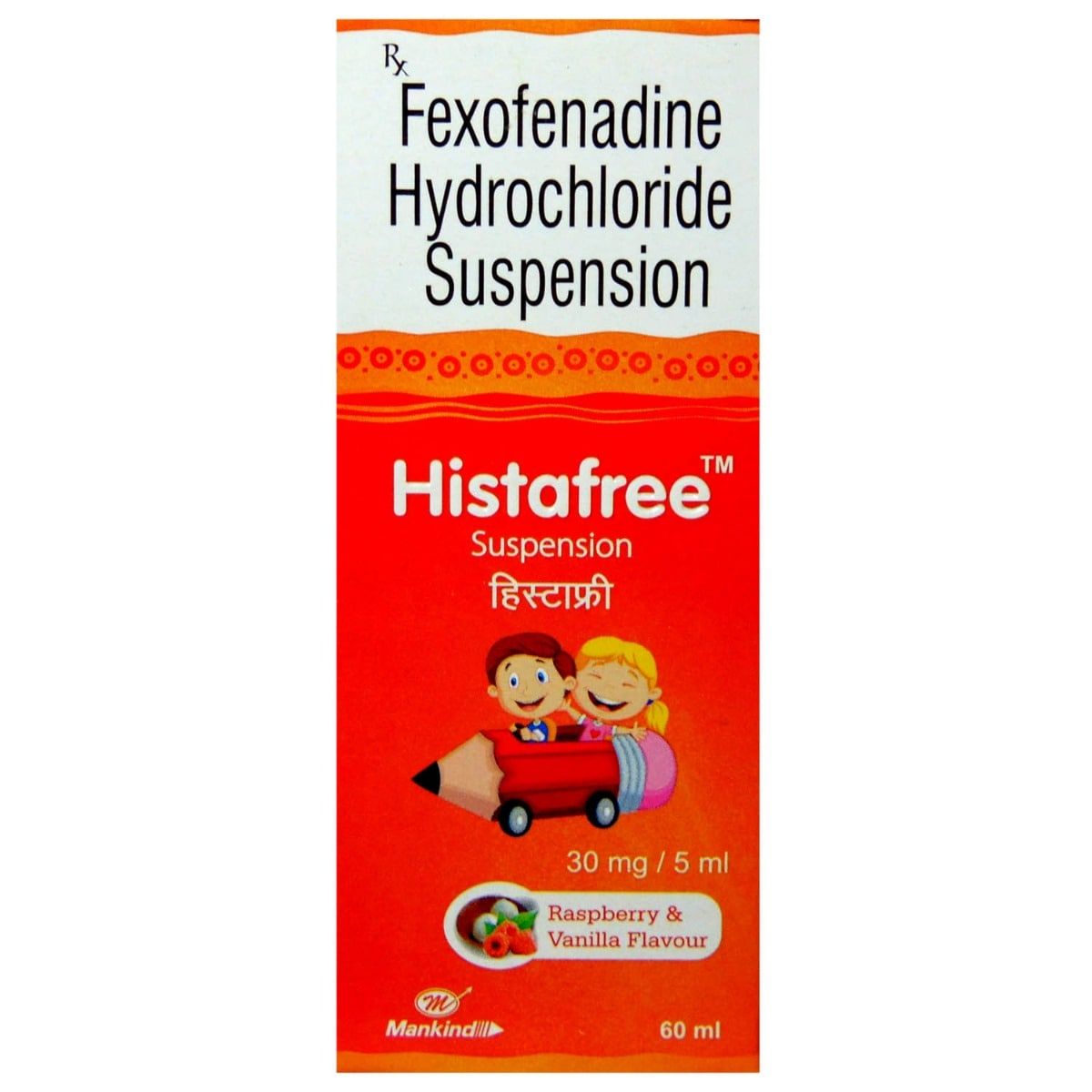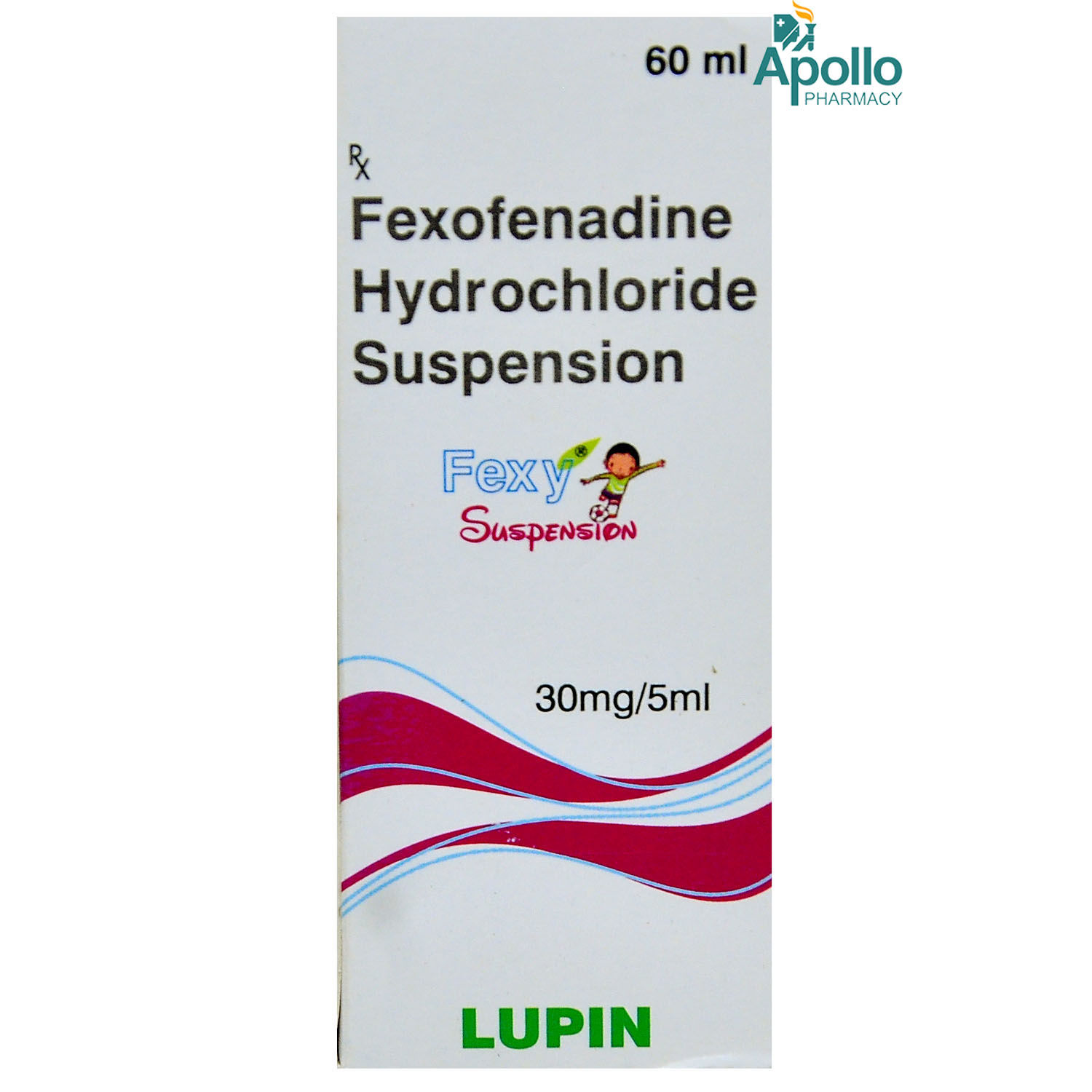Fenixa Syrup 60 ml
Fenixa Syrup is used to treat various kinds of allergies in children. It contains fexofenadine, a non-drowsy antihistamine. It works by blocking histamine action, which causes immune responses and inflammations in the body. Thus, it helps to treat hay fever (an allergy caused by pollen or dust), conjunctivitis (red, itchy eye), eczema (dermatitis), hives (red, raised patches or dots), reactions to insect bites and stings and some food allergies.
₹94.5*
MRP ₹105
10% off
₹89.25*
MRP ₹105
15% CB
₹15.75 cashback(15%)
Free Delivery
With Circle membership
(Inclusive of all Taxes)
This offer price is valid on orders above ₹800. Apply coupon PHARMA10/PHARMA18 (excluding restricted items)
Know Your Delivery Time
Provide Delivery Location

Whats That

Secure Payment

India's Most Trusted Pharmacy

Genuine Products
Composition :
Manufacturer/Marketer :
Consume Type :
Return Policy :
Expires on or after :
About Fenixa Syrup
Fenixa Syrup is primarily used to treat various kinds of allergies. An allergy is an immune system response to foreign elements typically not harmful to your or your child’s body. These foreign elements are known as ‘allergens.’ Allergic condition varies from person to person. Some might be allergic to certain foods and seasonal allergies like hay fever. At the same time, others might be allergic to pollen or pet dander.
Fenixa Syrup contains fexofenadine, a non-drowsy antihistamine. It is less likely to make your child feel sleepy than other antihistamines. However, some people still find it makes them feel quite sleepy, which is used to treat allergies as it blocks the effects of a chemical messenger known as histamine, which is naturally involved in allergic reactions. Fenixa Syrup is widely used to treat hay fever (an allergy caused by pollen or dust), conjunctivitis (red, itchy eye), eczema (dermatitis), hives (red, raised patches or dots), reactions to insect bites and stings and some food allergies.
In some cases, Fenixa Syrup may cause headaches, nausea, or dizziness. Most of these side effects do not require medical attention and gradually resolve over time. However, if you notice any of these side effects persist or bother your child, inform your doctor immediately.
Inform your doctor about your child's entire medical history. Other drugs or supplements should not be combined with Fenixa Syrup unless a doctor advises. Do not use this medicine unless prescribed by the doctor.
Uses of Fenixa Syrup
Medicinal Benefits
Fenixa Syrup is known as a non-drowsy antihistamine. It's less likely to make you feel sleepy than other antihistamines. Fenixa Syrup provides instant relief from allergic reactions and symptoms by blocking histamine action, which causes immune responses & inflammations in the body. Fenixa Syrup is widely used to treat hay fever (an allergy caused by pollen or dust), conjunctivitis (red, itchy eye), eczema (dermatitis), hives (red, raised patches or dots), reactions to insect bites and stings and some food allergies.
Side Effects of Fenixa Syrup
- Feeling sick (nausea)
- Feeling sleepy
- Headaches
- Dry mouth
- Feeling dizzy
Directions for Use
Storage
Drug Warnings
If your child is allergic to any ingredient in Fenixa Syrup, inform your doctor. To rule out any unpleasant side effects or interactions, inform your doctor about your child's health condition and the medications receiving. Do not give more than the stated recommended dose.
Therapeutic Class
Drug-Drug Interactions
Drug-Food Interactions
Diet & Lifestyle Advise
- Some anti-inflammatory compounds in ginger can relax membranes in the airways, which could reduce coughing.
- Staying hydrated is vital for those with a cough or cold. Drinking liquids at room temperature can alleviate cough, runny nose, and sneezing.
- The immune system is affected by stress and raises the risk of being sick. An individual can exercise regularly, meditate, do deep breathing, and try progressive muscle relaxation techniques to relieve stress.
- To stay fit and safe, try to sleep 7-9 hours each night.
- It is advised to avoid contact with known allergens (allergy-causing agents) such as pollen, dust, etc. Certain food items are known to cause allergies to your child.
- Maintain personal hygiene and keep your child’s surroundings clean.
Habit Forming
How Fenixa Syrup Works
What if I have taken an overdose of Fenixa Syrup
Alcohol
Not applicable
It is intended for Children.
Pregnancy
Not applicable
It is intended for Children.
Breast Feeding
Not applicable
It is intended for Children.
Driving
Not applicable
It is intended for Children.
Liver
Caution
Fenixa Syrup should be used cautiously in children with liver disease as it may affect liver function. So inform your doctor about your child's medical condition. Your doctor may adjust the dose based on the condition of your child.
Kidney
Caution
Inform your doctor about your child's medical condition. Your doctor may adjust the dose based on the condition of your child.
Children
Safe if prescribed
Fenixa Syrup can be given safely to children. Give this medicine to your child in the doses prescribed by the paediatrician.
Country of origin
Manufacturer/Marketer address
Author Details
We provide you with authentic, trustworthy and relevant information
FAQs
Disclaimer
Product Substitutes


















